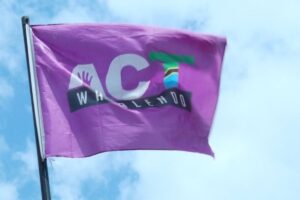Tanzania Mwanza — Health Minister Ummy Mwalimu has formulated a probe team to investigate alleged frauds at the Nansio Referral Hospital construction project worth 2.7bn/- in Ukerewe district.
The committee of five members, led by retired Judge Thomas Mihayo, is tasked with unearthing truth on fraud allegations, which in turn have led to delays and valuations of the scheme.
The minister formed the team during her work visit at Ukerewe District on December 21 this week, where she inspected the progress of the execution of the Nansio Referral Hospital Project that has reached 60 per cent completion.
The project, which kicked off in May this year, was expected to be completed in January 2023, but might be delayed because of alleged frauds, irresponsibility and lack of cooperation among officials.
According to Ms Mwalimu, on May 2022, the Central Government allocated 2.7bn/- to Ukerewe Island to build the referral hospital, considering its geographical location being an Island enclosed within the Lake Victoria and being far from Sekou Toure Regional Hospital.
She said the step was taken as an alternative to enable majority of the citizens have access to specialist health services, including radiology and surgery advancing health services in Ukerewe for sustainable development.
“The target might be missed, since the Nansio Referral Hospital construction project is surrounded by fraud allegations, raising questions over value for money and why the contractor was paid 100 per cent of the payment, even before the implementation of the project,” she pointed out.
Elaborating, Ms Mwalimu noted that the project’s master plan also didn’t consider referral hospital buildings’ requirement(s), as currently four structures are under construction.
She named them as Reproductive Child Health (RCH), Out Patients Department (OPD), Pharmacy and Mortuary which were not in the government’s plan, adding: “The four structures target health services which can also be provided at the district hospital as well as in the dispensary.”
In a related development, she directed the review of the master plan shortly after submission of the report from the formed special committee led by retired justice Mihayo.
On his part, Mwanza Regional Officer Adam Malima called for observance of value for money, and reminded contractors and the project consultants to rethink about the quality of the structures so that they meet standards of the intended purpose.
Source: allafrica.com
Share this news
This Year’s Most Read News Stories

Tanzania’s path to 4Rs: The President Samia’s era
Tanzania has embarked on a journey of resilience, rebuilding, reconciliation, and reform under the leadership of President Samia Suluhu Hassan.Continue Reading

ACT Unaware of Mwinyi’s joint committee on Zanzibar reforms
Opposition party ACT Wazalendo has said it is not aware of a special committee on reforms and has directed the party’s leadership to follow up on the decision of the Central Committee which directed its leaders to meet with President Hussein Ali Mwinyi.Continue Reading

Juma Haji Duni: A legacy of resilience and leadership in Zanzibar politics
The recurring inefficiency among some contractors could lead the government to favour foreign firms, sparking criticism from stakeholders advocating for local participationContinue Reading











